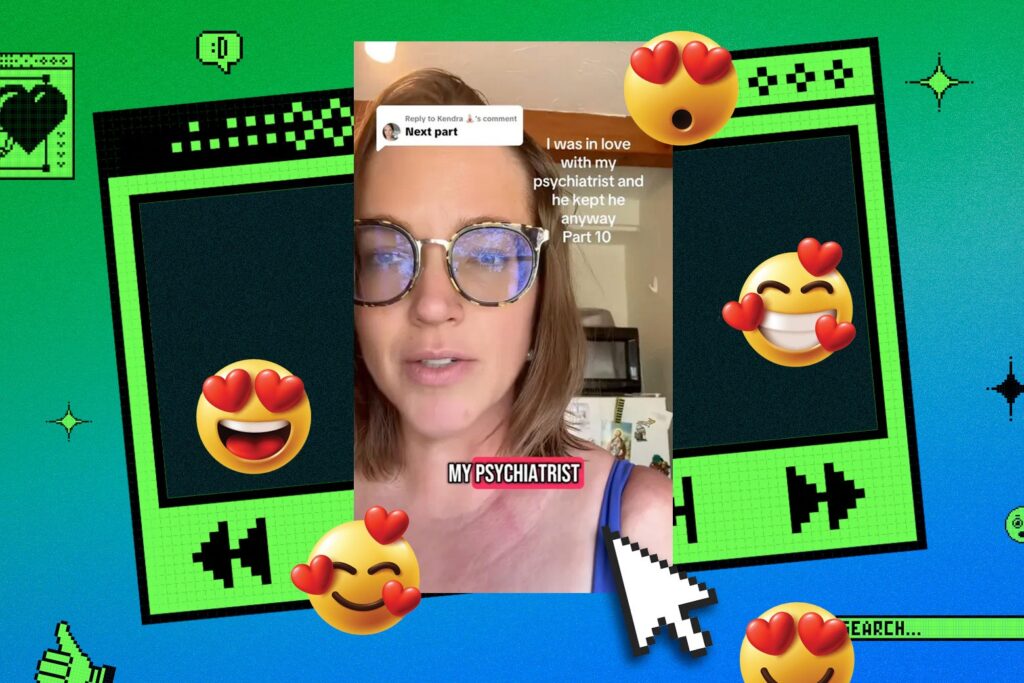
A 25-part TikTok series featuring a woman named Kendra has drawn significant attention for its exploration of her emotional journey falling in love with her psychiatrist. The series, created by Kendra herself, initially captivated viewers with its relatable narrative but soon veered into more complex and troubling territory. What began as a seemingly simple love story has transformed into an examination of mental health and social media’s role in personal experiences.
The TikTok series garnered widespread viewership, with many users drawn to Kendra’s candid storytelling. However, as the episodes unfolded, the narrative took unexpected turns. Audience members began to raise questions about Kendra’s mental well-being, offering unsolicited diagnoses and critiques in the comments. This phenomenon reflects a broader trend in which personal experiences shared online become fodder for public consumption and speculation.
From Romance to Reality Check
Initially, the series was perceived as a captivating tale akin to the popular “Who The F*** Did I Marry?” series by Reesa Teesa. However, the tone quickly shifted as followers observed troubling patterns in Kendra’s relationship with her psychiatrist. Instead of merely enjoying the content, viewers found themselves grappling with ethical dilemmas surrounding mental health discussions on social media.
In a recent episode of the podcast ICYMI, host Kate Lindsay and senior supervising producer Daisy Rosario delved into Kendra’s story. They discussed how TikTok users reacted not only as spectators but also as self-appointed mental health evaluators. This interaction raises important questions about the fine line between entertainment and the genuine struggles that individuals face in their lives.
The podcast episode used audio clips from TikTok user @tayyy.jpeg to illustrate the conversations surrounding Kendra’s series. As the discussions evolved, it became clear that many viewers were not just watching; they were engaging critically with Kendra’s mental health narrative, often without her context or consent.
The Role of Social Media in Mental Health Discourse
The phenomenon surrounding Kendra’s series highlights a critical aspect of social media culture: the blurring lines between personal storytelling and public scrutiny. As individuals share their lives online, the audience’s responses can significantly impact their narratives, sometimes in detrimental ways. Kendra’s experience exemplifies how platforms like TikTok can amplify personal stories, but also complicate them when viewers take on roles of judge and jury.
Kendra’s journey serves as a reminder of the double-edged sword that social media can represent. It provides a platform for individuals to share their experiences and connect with others, yet it can also lead to misinterpretation and judgment from those who may not fully understand the complexities of mental health issues.
The ongoing dialogue surrounding Kendra’s series has sparked interest in how online communities engage with mental health narratives. As more individuals turn to social media to share their journeys, it becomes increasingly important to foster a culture of empathy and understanding, rather than one of speculation and criticism.
As Kendra continues to share her story, the implications of her TikTok series extend beyond her own experience. They invite broader conversations about the intersection of mental health and social media, challenging both creators and audiences to approach such narratives with care and consideration.







